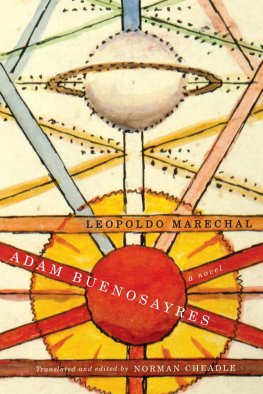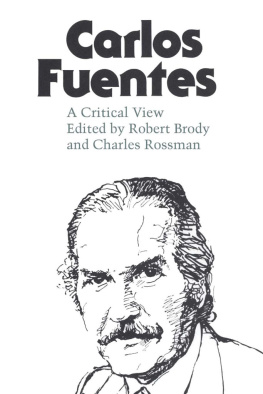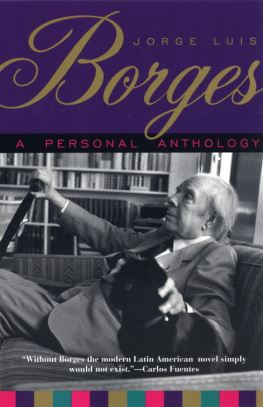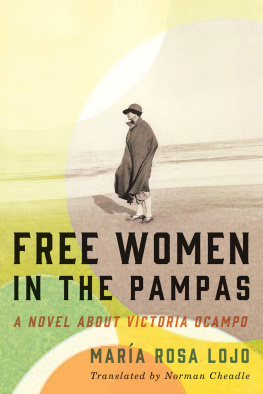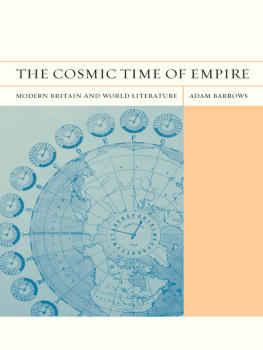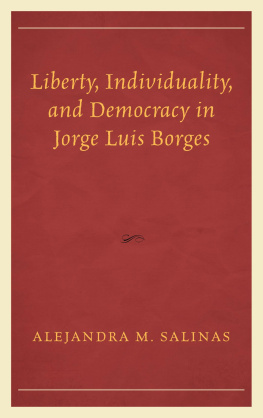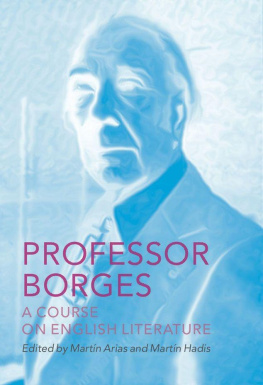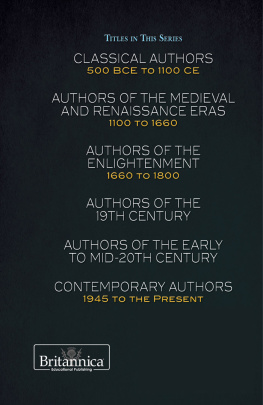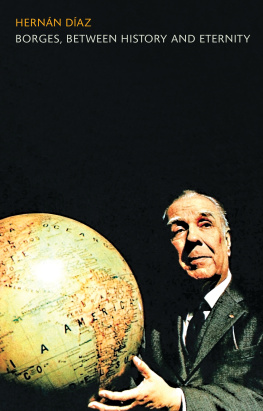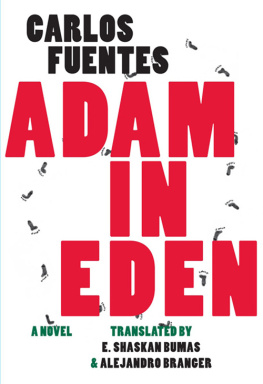Leopoldo Marechal
Adam Buenosayres
The following organizations are gratefully acknowledged for their support:
The Social Sciences and Humanities Research Council of Canada, for a Standard Research Grant (200408)
The Laurentian University Research Fund
The Sur Translation Support Program of the Ministry of Foreign Affairs, International Trade and Worship of the Argentine Republic
The Federation for the Humanities and Social Sciences, through the Awards to Scholarly Publications Program, using funds provided by the Social Sciences and Humanities Research Council of Canada
This project could never have been brought to fruition without the constant support, encouragement, and friendship of Mara de los ngeles Marechal, who has helped in so many ways: by putting at my disposal the archives of the Fundacin Leopoldo Marechal, facilitating access to the Marechal archives housed at the Universidad Nacional de Rosario, and by introducing me to many individuals in Buenos Aires who in turn helped orient my research in diverse ways, all of whom I salute here. Special thanks go to filmmaker Gustavo Fontn, whose conversation and documentary films taught me much; to Alberto Pieiro, director of the Museo Histrico de Buenos Aires Cornelio de Saavedra, whose highly knowledgeable guided tours through his citys past and present have been unforgettable; to Guillermo Julio Montero, not only for his psychological insight into Leopoldo Marechal but also for his exquisite hospitality; and to Susana Lange, for sharing memories of her illustrious aunt. Thanks are due as well to Magadalena La Porta, especially for her diligent research at the archives of the Sociedad Argentina De Escritores (SADE). The art historian Adriana Lauria, Rosa Maria Castro of the Fundacin Forner-Bigatti, and Enrique Llambas of the Centro Virtual de Arte Argentino have been wonderfully helpful in the procurement of old photos my sincere thanks to all three. I wish to express my appreciation to Mara Magdalena Marechal, too, for the warmth of her conversation and the sensitivity with which she has brought her fathers work to the stage.
Over the years, many people have influenced in some way or other the realization of this project. Fellow Latin-Joyceans Csar Salgado, Gayle Rogers, Brian Adams, and John Pedro Schwartz have all provided valuable insight and intellectual stimulation, as have fellow Marechal scholars Claudia Hammerschmidt and Ernesto Sierra. Conversations with my Argentine-Canadian colleagues Emilia Deffis, Rita de Grandis, and Mara del Carmen Sillato suggested new perspectives, added nuance, and were a source of enthusiasm and support; the same goes for fellow Hispanists, and translators, Hugh Hazelton, Stephen Henighan, and Andrea Labinger. Intellectual exchanges with Mario Boido, Mara Figueredo, Mark Heffernan, Amanda Holmes, Lucien Pelletier, and Michael Yeo have nourished and influenced my general perspective on this project.
My immense gratitude to the editors at McGill-Queens University Press to Kyla Madden for listening with courteous intelligence and opening the door; to Mark Abley for his good humour, sage advice, and Herculean efforts to make this project happen; and to Ryan Van Huijstee for his savoir-faire in the art of editing. I owe a special debt of gratitude to copy editor Jane McWhinney for many inspired stylistic suggestions that improved the text.
To Nicola Jacchia, fellow translator of Adn Buenosayres, who helped me through thorny translation problems: Salute!
The generously shared erudition of Javier de Navascus, as well as his friendship and moral support, has been quite simply invaluable.
CONTEXTS: NATION, HEMISPHERE, WORLD
The publication of this book is an extraordinary event in Argentine literature. So wrote Julio Cortzar in his 1949 review of Adn Buenosayres (20)2 shortly after the novel was published in 1948. The young Cortzar struggled somewhat to conceptualize just why the novel was so extraordinary, but there can be little doubt that this literary event had an influence on Cortzars brilliant Rayuela (1963) [Hopscotch] whose unusual structure and celebration of language surely owe something to Marechals Adn. Later, other novelists of the 1960s Boom generation Ernesto Sbato, Carlos Fuentes, Jos Lezama Lima, Augusto Roa Bastos echoed Cortzars appreciation; and after them, major post-Boom writers such as Ricardo Piglia and Fernando del Paso. Speaking as an Argentine, Piglia names Roberto Arlt, Jorge Luis Borges, and Leopoldo Marechal as his precursors, the writers who forged the direction of twentieth-century Argentine literature (Ficcin y poltica 102). Del Paso, Mexican author of Noticias del Imperio (1986) [News from the Empire] a sweeping tour de force that marries Joycean narrative with the historical novel does not hesitate to qualify his Buenosayres querido [beloved Buenosayres] as one of the greatest Spanish American novels of the twentieth century (16). Today, one can say not only that the arrival of Adn Buenosayres was a signal event for both Argentine literature and Latin American narrative fiction but also, if we are to credit Franco Moretti, that Marechals novel is a significant feature in the topography of world literature.
Paradoxically, however, as del Paso observes in the same breath, Adn Buenosayres is one of Spanish Americas least read novels. Even so vastly well-read an intellectual as Carlos Fuentes learned of Adns existence only in the 1960s, after fellow Mexican writer Elena Garro thought she detected its influence on Fuentess first novel, La regin ms transparente (1958) [Where the Air Is Clear]. The astonished Fuentes went to great lengths to track down a second-hand copy of Adn Buenosayres; thoroughly impressed by it, he then likened it to Joyces Ulysses (1922), Alfred Dblins Berlin Alexanderplatz (1929), and John Dos Passoss Manhattan Transfer (1925), as well as to his own work (Carballo 5612). The anecdote is significant for more than one reason. First, how was it possible that Fuentes, who actually lived for a time in Buenos Aires, had never heard of Marechals novel? Second, without any need to speak of influence, it became clear to Fuentess contemporaries that Adn Buenosayres was in tune with the new direction of the Spanish American novel of his generation. Third, Adn is a Joycean novel of the metropolis that Fuentes places in an international rather than a national, regional or hemispheric context.
In the twenty-first century, literary theory and practice both confirm this third point. In Volume 2 of his monumental work The Novel, Franco Moretti includes a reading of Adn Buenosayres under the rubric The New Metropolis a series of short interpretations of major novels that is critically framed by Philip Fishers Torn Space: James Joyces Ulysses (in Moretti 66583). There, Ernesto Francos personal essay on Adn Buenosayres holds a place between other readerly takes on novels of the city, set respectively in Shanghai and Lagos.3 Just as those two novels give narrative form to the torn space of twentieth-century Asian and African metropolises, Leopoldo Marechals Adn grapples with the turbulent space of a great Latin American port city. Buenos Aires, in the late nineteenth and early twentieth centuries, was deluged by torrential flows of foreign capital (mostly British) and immigration (especially from Italy, Galicia in northern Spain, and Eastern Europe, but also from Syria and Lebanon). By the 1920s Buenos Aires in motion was laughing; Industry and Commerce were leading her by the hand, warbles the narrator of Adn, cheekily parodying the boosterism of newsreels, propaganda organ of capitalism. Adam Buenosayres enters the street of his city a river of multiplicity and finds peoples from all over the world [who] mixed languages in barbarous dissonance, fought with gestures and fists, and set up beneath the sun the elemental stage of their tragedies and farces, turning all into sound, nostalgias, joys, loves and hates.

